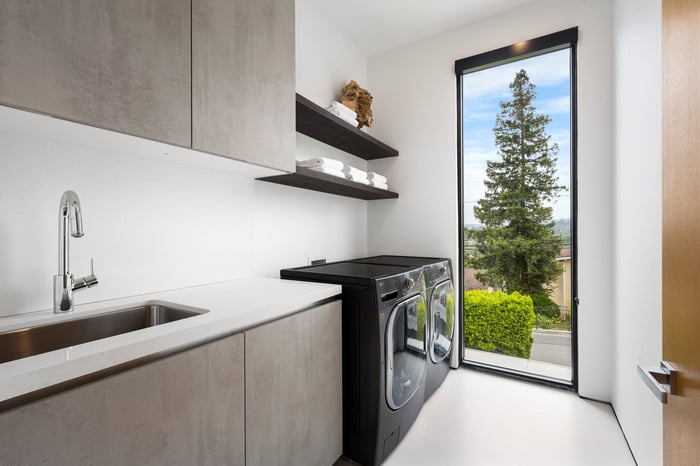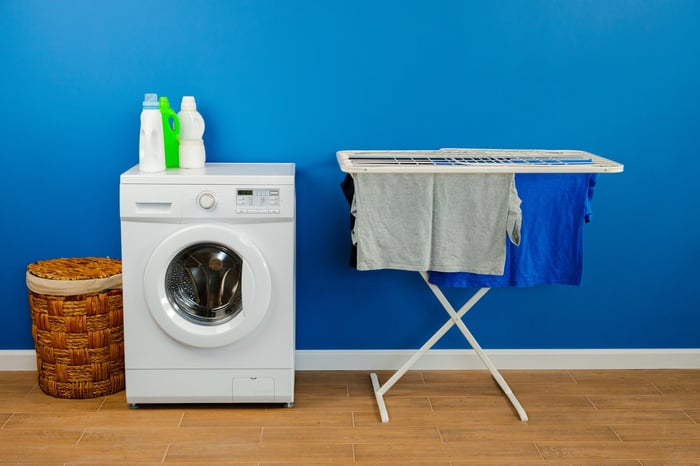
When you think of indoor dryer vents, you probably picture a flexible silver hose pushing hot air through the wall to the outside. But what if your laundry room is in the center of the house? Or you're in an apartment or condo where cutting through a wall isn’t an option?
That’s where indoor dryer vents come in.
In this guide, we’ll break down:
- What indoor dryer vents are
- The pros and cons of using one
- When and where to use an indoor dryer vent kit
- Key safety tips for getting it right
- Why all indoor dryer exhaust vents are not created equal
What Is an Indoor Dryer Vent?
An indoor dryer vent allows your dryer to release exhaust into your home instead of venting it outdoors. These are typically used with electric dryers in homes or buildings where external venting is not possible.
Unlike traditional vents, indoor venting for dryers uses filters—usually in a dedicated indoor dryer vent kit—to trap lint and prevent it from circulating back into your living space.
⚠️ Note: Never use an indoor dryer vent with a gas dryer. Doing so could expose you to dangerous levels of carbon monoxide.
When Do You Need an Indoor Dryer Exhaust Vent?
You might consider indoor venting if:
- Your laundry room is far from an exterior wall
- You live in a high-rise, condo, or mobile home
- Cutting into an exterior wall is not permitted (or practical)
- You want a temporary setup in a rental space
- You're remodeling and need a flexible venting solution
In these situations, an indoor dryer exhaust vent can be a safe and effective workaround—if you choose the right one and maintain it properly.
What to Look for in an Indoor Dryer Vent Kit
Not all kits are created equal. If you're searching for the best indoor dryer vent kit, look for these features:
- Dual-layer filtration: Traps lint and dust efficiently
- No water trays: These are messy and prone to mold
- Easy access for maintenance: You’ll be cleaning it often
- Made for electric dryers only
- Durable housing and mounting options
🔍 ADR Products’ BetterVent® is one of the most trusted indoor vent kits on the market—no water trays, easy filter replacement, and built in the USA with long-term use in mind.
Indoor Venting vs. External Venting: What’s the Difference?
Feature | Indoor Dryer Vent Kit | Traditional Outdoor Vent |
Install difficulty | Easy (no exterior cuts) | Moderate to complex |
Building limitations | Great for multi-family units | Requires access to exterior wall |
Maintenance | Frequent filter cleaning | Occasional duct cleaning |
Use with gas dryers | ❌ Not safe | ✅ Required |
Comfort factor | Adds warmth/humidity | Removes heat from home |
Safety Tips for Using Indoor Dryer Vents
- Only use with electric dryers.
- Clean the lint trap as often as needed.
- Inspect and clean the vent filter monthly.
- Replace fine filters every 3–4 months or as needed.
- Vacuum behind the dryer and duct area regularly.
Common Mistakes to Avoid
- Using foil or plastic ducting → These can sag and trap lint. Use rigid or semi-rigid metal ducts only.
- Overlooking filter maintenance → Dirty filters reduce airflow and cause overheating.
- Trying to vent a gas dryer indoors → Don’t. Ever.
Is Indoor Dryer Venting Right for You?
If you're using an electric dryer and can't install an external vent, an indoor solution may be your best option. But it’s essential to choose a high-quality indoor dryer vent kit, install it correctly, and follow a strict maintenance routine.
When done right, indoor venting for dryers can be a safe, convenient, and effective alternative.
Final Word
Dryer venting isn’t one-size-fits-all—especially when your layout or building restrictions throw a wrench in the works. But with the right equipment, like ADR’s BetterVent® Indoor Dryer Vent Kit, you can take control of your setup, stay safe, and get your laundry dry without compromise.




